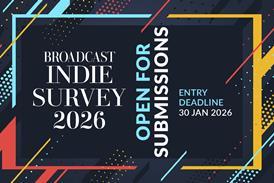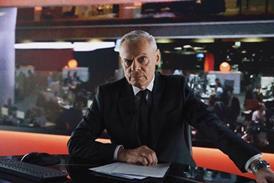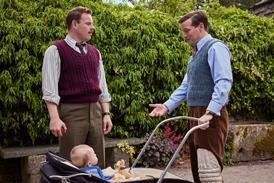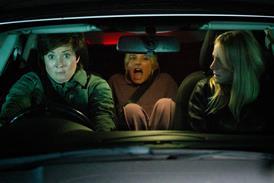Today, a major disaster. My Qtek 9000, which runs Windows Mobile 5, had a Resco Explorer plug-in whose registration expired. When I downloaded the update as a Cab file, it broke up midway because the wi-fi settings were missing an IP. See how all that just tripped off my tongue? And it's my phone I'm talking about - my phone.
A couple of years ago the only thing I needed to know about a Cab file was that the drivers got really angry if you didn't take the one parked at the front.
Anyway, the phone is sorted so I can access my numbers and ring my mum. Job done. She always says the same thing when I complain about this preposterous lump of circuitry that makes my jacket hang lop-sided: “Jeremy, why don't you just carry a pen and paper?”
Sometimes I want to shout my mum's line from the stage at the Radio Festival. Looking out at a sea of intelligent, friendly, sometimes bearded faces, I find the Qtek thought recurring. Why do we spend so much time discussing the technology when all we really want to do is make programmes?
TV has nothing on the complexities of radio these days. The titles of talks can sound like long-lost punk bands - 3G and the Podcasters - as the impact of change spreads. This year's festival will have a session on “visualising radio”, which airs the apparently pressing case for offering pictures alongside the audio because many people are now listening on a device with a screen. (This was discussed in a meeting I attended once at the Beeb. When one person said: “We need to think about offering moving pictures,” there was a pause and another piped up: “If we do, won't that be television?”)
There's no doubt change is reshaping the market. There will be big, scary stuff to discuss such as the upheaval in commercial radio. Also, what is happening with Channel 4's digital radio cluster, especially the station that will take on Radio 4? Come to think of it, what happened to digital radio? Mine makes a strange belching noise all the time, but apparently that is common in west London. There we are again, back with the technology.
We are going through a phase where it's dominating the radio world in a way it really hasn't since the very start. When I arrived on the Today programme in 1989 as a reporter we carried reel-to-reel Uher machines.
They were so big that a man we accused of selling Nazi memorabilia in Carnaby Street managed to terminate my attempt to doorstep him by lunging successfully at the pause button, which was as big as a playing card. In 1991 the engineers announced a major technical change - reporters would move to cassette tapes. It was as if the workings of the wireless were so perfect so long that they resisted change without any help. Then change came all at once. Even the word “wireless” means something else now.
Which is a shame. Radio people enjoy being at the cutting edge, but we like nothing better than to discuss why John Peel and Kenny Everett were the “greatest ever”, whether Capital in the 1970s was exactly where Radio 2 is now, and how making radio comedy is the hardest thing in the world. Oh, and music. We love our music.
In the end the joy of radio is the purity of the listener connection - Peel and Kenny really were in my bedroom when they spoke; they were mine. When they started appearing on telly the aura was gone because they were everyone's.
So this festival I shall turn off my phone and bring pen and paper. Amid all the havoc of changing markets and machinery, we need to sit still, concentrate, and keep it simple. And there is just a chance that we will.
Jeremy Vine is hosting this year's Radio Festival in Glasgow from 30 June to 2 July. www.radiofestival.co.uk

























No comments yet